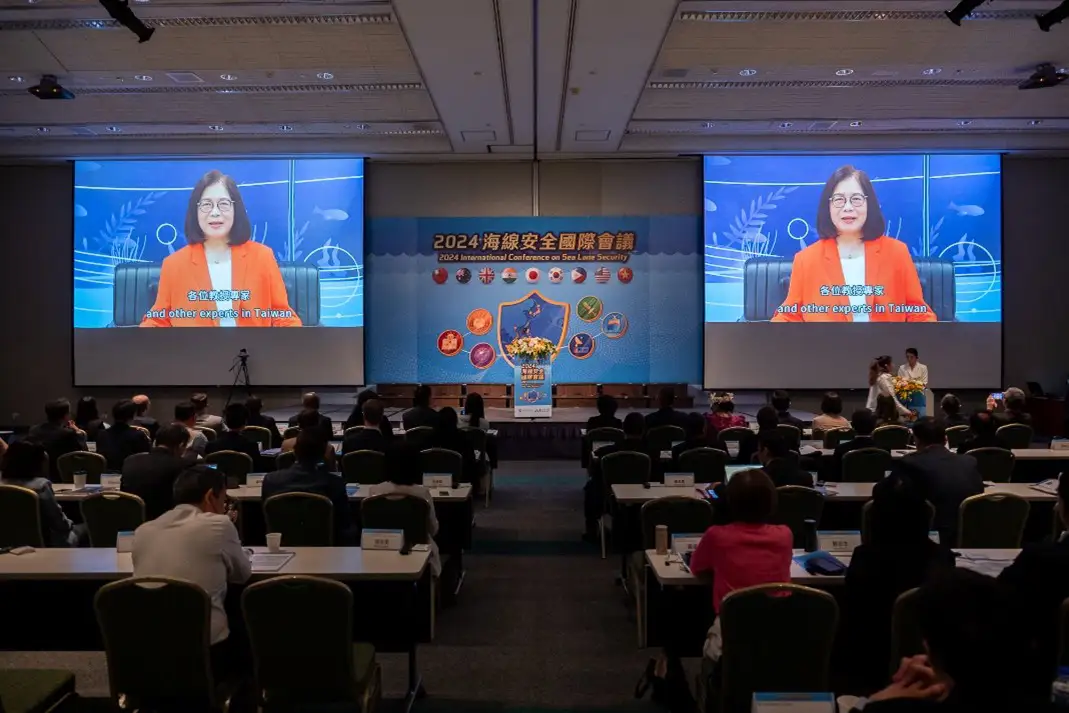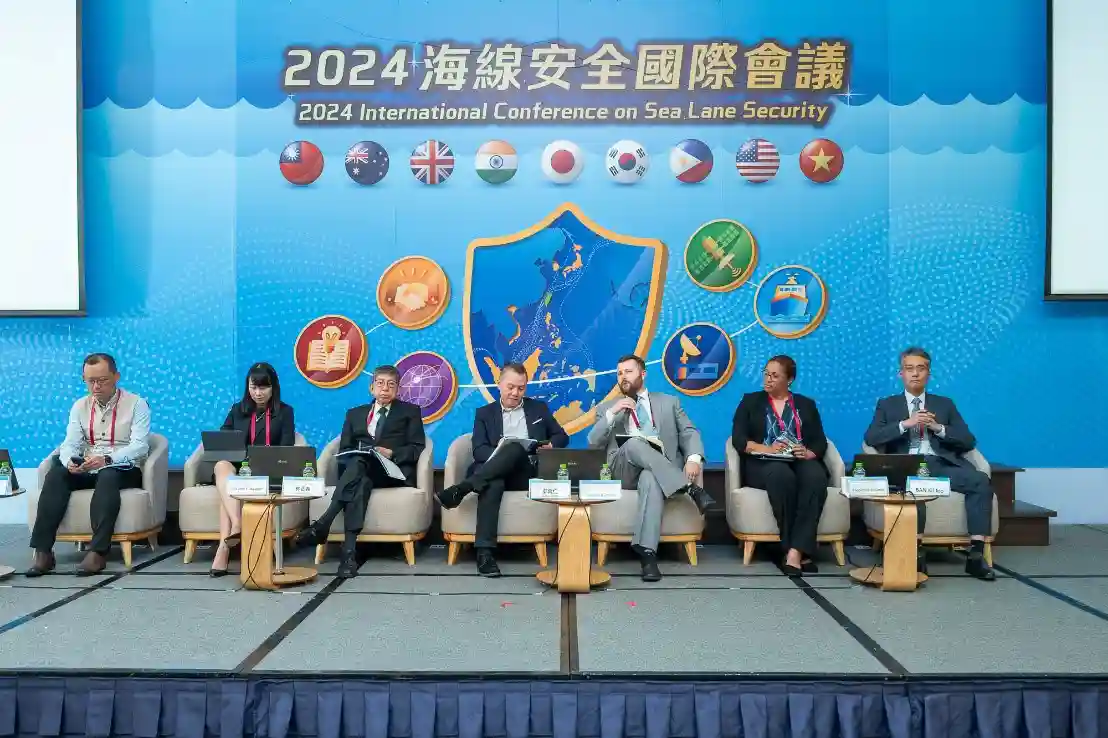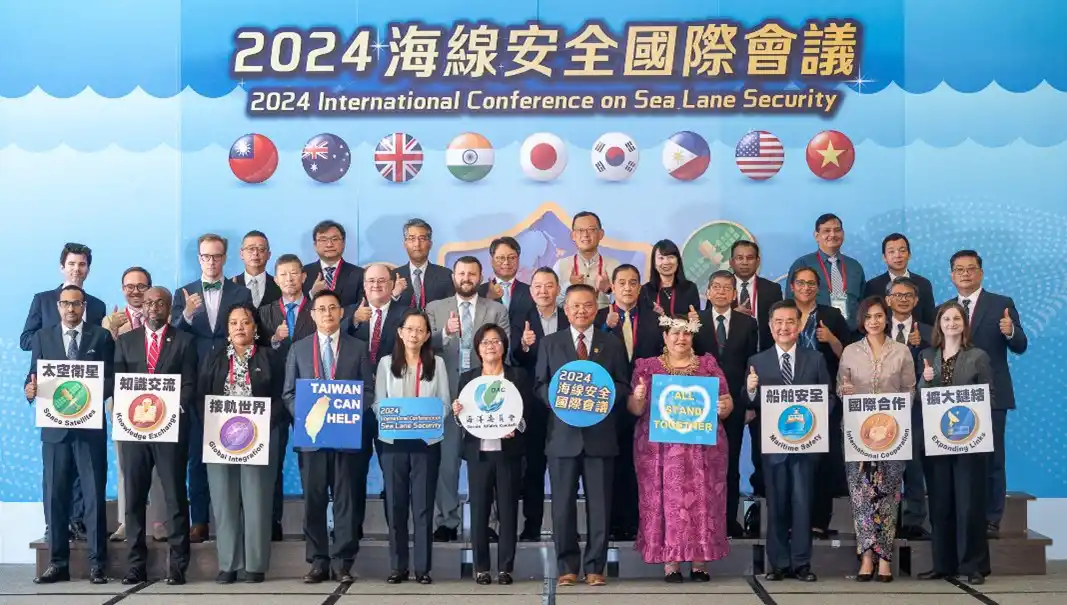OAC Initiates "International Conference on Sea Lane Security": Security Agencies from 9 Indo-Pacific Nations Participate
OAC Initiates "International Conference on Sea Lane Security": Security Agencies from 9 Indo-Pacific Nations Participate

The 2024 "International Conference on Sea Lane Security," co-hosted by the Ocean Affairs Council (OAC) and National Sun Yat-sen University (NSYSU) on the 7th at the Taipei International Convention Center. The conference was attended by experts and scholars from 8 countries, including the United States, Australia, Japan, the United Kingdom, India, South Korea, the Philippines, Vietnam and Taiwan, to discuss the future direction of global maritime security and international cooperation.
In the opening ceremony, Bi-Ling Kuan, the Minister of the Ocean Affairs Council, remarked that maritime security is crucial for Taiwan's stable development, the global economy, and international cooperation. Minister Kuan emphasized, "The OAC will continue to promote maritime technology cooperation and strengthen international exchanges. Peace is a shared value among Indo-Pacific countries, and Taiwan can contribute significantly." She also urged technologically advanced nations to collaborate with Taiwan to create a safer and more stable maritime environment.
Mei-Hung Wu, the Vice Minister of the Ocean Affairs Council, stated that in addressing the various challenges of sustainable maritime governance, the OAC remains committed to a diligent, stable, and pragmatic approach in actively responding.

International Maritime and Air Cooperation: Revealing Gray Zone Threats
Gregory B. Poling, the Senior Fellow and Director of the Center for Strategic and International Studies (CSIS), stated in his keynote speech that Taiwan's strategic geopolitical position necessitates enhanced maritime technology cooperation with neighboring countries, with the government playing a pivotal role in advancing these technologies. Poling highlighted that achieving the goal of shared Maritime Domain Awareness (MDA) with neighboring countries requires the development and deployment of systems such as Low Earth Orbit Satellites (LEOS) and strengthening space satellite cooperation with surrounding nations.
The session's moderator, Yu-Jen Kuo, Professor at the Institute of China and Asia-Pacific Studies, NSYSU, proposed the "Transparent and Open Maritime Awareness Cooperation Initiative," advocating for the establishment of an open and shared international platform, including Taiwan, to share information on "Black Ships"(くろふねらいこう)and enhance monitoring capabilities of illegal activities and gray zone operations.

Japanese and Indian Experts: Strengthening Satellite Tech Development and Sharing to Address Gray Zone Threats
Dr. Hide Sakaguchi, the President of the Ocean Policy Research Institute, Sasakawa Peace Foundation (OPRI-SPF), emphasized that the safety of maritime transport routes is vital for global peace. He noted that technological development should not be viewed as a competition but rather as an opportunity for countries to share information and jointly prevent natural disasters and wars. Particularly in the field of MDA (Maritime Domain Awareness), advanced nations should not only use high technology to gather more data but also focus on analyzing existing data and promoting the widespread adoption of MDA technologies.
Katsuya Yamamoto, Former Rear Admiral of the Japan Maritime Self-Defense Force (JMSDF), highlighted the crucial role of transparency in information sharing and cooperation in maritime security in safeguarding the common interests of neighboring countries. He also stressed the importance of collaboration among various national coastguards.
Captain (Retd.) Kamlesh Kumar Agnihotri from India shared practical experiences of satellite technology applications in the Indian Ocean. The Information Fusion Centre for the Indian Ocean Region involves participation from 13 countries, including the United States, Japan, and Australia. Utilizing satellite technology from these nations, maritime data from the South China Sea, Pacific Ocean, and Indian Ocean is collected and analyzed to monitor the activities of suspicious vessels, maritime militia, and illegal commercial and fishing vessels, demonstrating the implementation of MDA in Indo-Pacific countries.
Tzu-Yun Su, Director of the Institute for National Defense and Security Research, noted that Taiwan's geographical position holds significant importance for global stability and security, both commercially and in terms of sea lane security. Su called for cooperation between the Asia-Pacific countries and the United Nations with Taiwan, the United States, and Japan to enhance regional maritime security through emerging satellite technologies and to assist countries prone to natural disasters in prevention and post-disaster recovery efforts.
Yun-Hu Yeh, Associate Professor at the Central Police University, warned that gray zone lack a consistent definition, making them difficult to constrain under international law. Legislator Kuan-Ting Chen stated that this international conference has raised awareness of the impact of sea lane security on national security, benefiting regional security and defense.
The "International Conference on Sea Lane Security" gathered key representatives and experts from multiple countries, including personnel from renowned academic institutions such as CSIS, National Oceanography Centre, Australian National Centre for Ocean Resources and Security (ANCORS), OPRI-SPF, Korea University, Philippines De La Salle University (DLSU), Diplomatic Academy of Vietnam, and Vietnamese Academy of Social Sciences.
Related News:Ocean Affairs Council and NSYSU Co-host "International Conference on Sea Lane Security"
